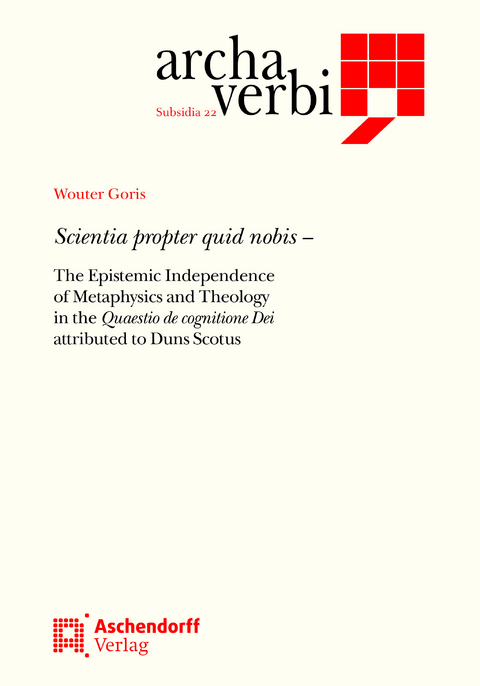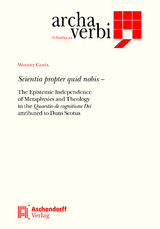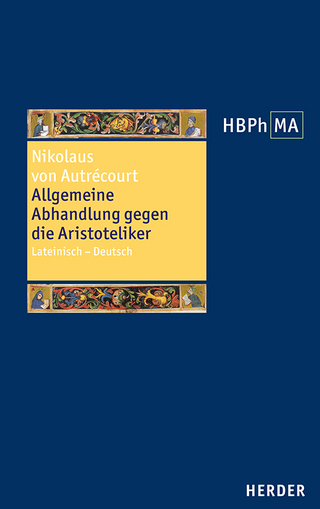Scientia propter quid nobis —
The Epistemic Independence of Metaphysics and Theology in the Quaestio de cognitione Dei attributed to Duns Scotus
Seiten
This study is part of a larger project on the primacy of adequacy in the philosophical thought of Duns Scotus. It offers, together with a critical edition, the first attempt at an overall interpretation of the Quaestio de cognitione Dei attributed to Duns Scotus - a text famous for its enhancement of Scotus's conception of metaphysics with the systematic distinction between metaphysics as a science 'in itself' and 'for us'. In line with the theory of science in the Lectura Parisiensis, in which Duns Scotus casts theology as a strictly demonstrative science in the present state (a scientia propter quid nobis), the Quaestio de cognitione Dei is seen to demand that the same be allowed for metaphysics as well - its conception of metaphysics as a scientia in se distinct from theology hence critically amends Scotus's conception of metaphysics. This criticism not only shows that the Quaestio de cognitione Dei is wrongly attributed to Duns Scotus and is rather to be situated in the innerfranciscan debate on his Parisian theory of science in the second decade of the 14th century - in the direct environment of John of Reading, whose texts resonate in the Quaestio de cognitione Dei. This criticism also incites further investigation into the singular character of Scotus's Parisian conception of science as well as a reconsideration of the traditional interpretation of his metaphysics, prey to the systematic inconsistency the Quaestio de cognitione Dei denounces.
| Erscheinungsdatum | 29.09.2022 |
|---|---|
| Reihe/Serie | Archa Verbi. Subsidia ; 22 |
| Sprache | englisch |
| Maße | 175 x 245 mm |
| Einbandart | gebunden |
| Themenwelt | Geisteswissenschaften ► Philosophie ► Philosophie des Mittelalters |
| Geisteswissenschaften ► Religion / Theologie | |
| Schlagworte | Christentum • Religion • Theologie |
| ISBN-10 | 3-402-10329-X / 340210329X |
| ISBN-13 | 978-3-402-10329-6 / 9783402103296 |
| Zustand | Neuware |
| Haben Sie eine Frage zum Produkt? |
Mehr entdecken
aus dem Bereich
aus dem Bereich
Buch | Softcover (2024)
Reclam (Verlag)
CHF 11,90
Lateinisch - Deutsch
Buch | Hardcover (2024)
Herder (Verlag)
CHF 97,95
Redewendungen aus der Natur
Buch | Hardcover (2024)
Regionalia Verlag
CHF 11,10




